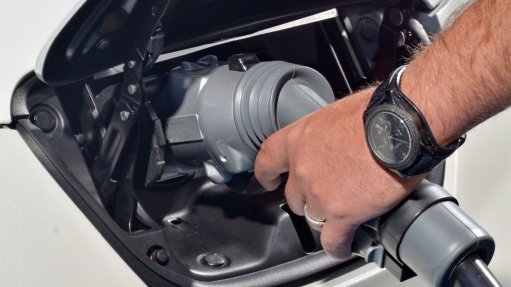
Energy storage and automotive component specialist Metair has launched a programme to produce lithium-ion (li-ion) batteries across its operations in South Africa, Turkey and Romania.
The programme will see Metair partner with universities and industry agencies for the production and certification of li-ion batteries.
Historically, Metair used available li-ion solutions from upstream suppliers to deliver customer-specific systems and solutions, adding only its own system design and controls.
This, however, is set to change.
In South Africa, Metair will partner with the South African Institute for Advanced Materials Chemistry (SAIAMC), located at the University of the Western Cape (UWC), which houses the only pilot scale li-ion battery cell assembly facility in Africa.
Metair’s agreement with UWC will see the company invest R3-million over three years to pilot a prototype lithium production project from January, to improve equipment and to sponsor one local post-doctoral fellow to be trained at Argonne National Laboratory, in the US.
Production will focus on mining cap lamp cells, 12 V li-ion automotive batteries, 48 V li-ion batteries for energy storage applications and solar panel recharge technology.
“Energy storage is a major focus area for many industries globally,” explains Metair MD Theo Loock.
“South Africa was at the forefront of li-ion battery technology and we believe that this should remain the case as the global transition towards electric vehicles and renewable sources of energy drive the requirement for increasingly sophisticated energy storage solutions that rely on locally sourced raw materials and production facilities to reduce costs.”
The local partnerships, such as the one with UWC, will provide a platform for Metair to validate its local solutions on a regular basis as the global production of electric vehicles accelerates.
Metair will, however, also continue to use internationally recognised li-ion chemistry solutions and apply specific design and controls for customers.
Manganese in Abundance
“In South Africa, we will invest and work closely with UWC to deliver a locally validated li-ion solution for mining cap lamp applications using the most efficient chemistry mix based on widely available local minerals, such as manganese, to support local beneficiation,” says Loock.
“Our relationship will ensure that the testing and validation of the technology is undertaken according to strict academically driven standards, but [will] also support local human capital development as more students become involved in this process – alongside government and private companies – looking to develop commercially viable local production of li-ion solutions.”
South Africa is home to more than 80% of the world’s manganese, which is one of the main commodities required in the manufacturing of li-ion batteries, together with elements such as iron, nickel and fluorspar.
Most electric vehicles today use li-ion battery packs, the same technology that powers laptops, smartphones and tablets.
Metair believes that sustained research and development initiatives to support local production with locally available commodities will drive down costs.
“Metair continues to position itself to take advantage of changing technological trends, especially in our energy storage vertical, where the market conditions and dynamics are subject to technology shifts which include the mass introduction of electric vehicles,” notes Loock.